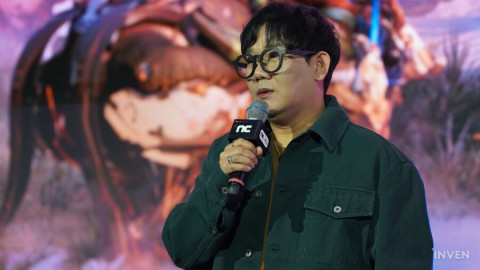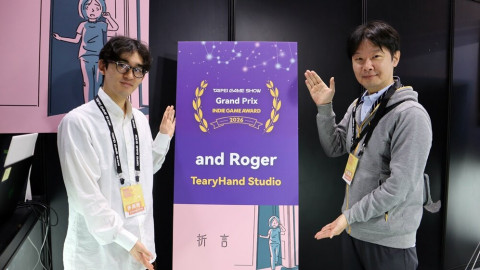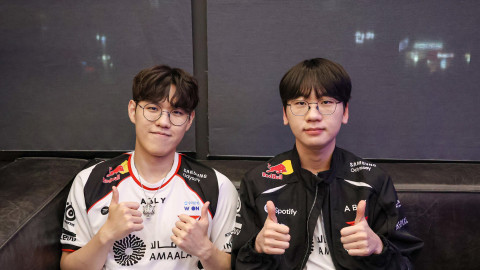
Hot tub streams were virtually unheard of at the start of 2021, but just a few months into the year, the topic of conversation around the internet water cooler still centers on girls in bikinis. A safe space for gamers has been invaded by the awful people that are mercilessly milking innocent folk for every penny, and children everywhere are at risk of corruption, depending on who you listen to.
Of course, there is another side to the argument that pointed out that Twitch wasn’t forcing you to watch the content, and that the content itself was no more explicit than a day out on the beach in terms of flesh exposed and morals corrupted. But what exactly does the rise of the hot tub stream tell us, and how is Twitch dealing with this new brand of streamer?
Big names sound off
Well, the first thing to clarify is that the vast majority of hot tub streams are in fact paddling pool streams, to put it bluntly. While there has been a lot written about the incomes of streamers like Tyler "Ninja" Blevins or Michael “Shroud” Grzesiek, the majority of Twitch’s denizens are trying to break out and become stars on what has traditionally been an accepting and egalitarian platform, while the names criticizing them tended to be those who already had an audience, or didn’t need to pursue other means of making money.
For all the criticism Twitch has come under, they were broadly a “creator-first” platform, although their ethical stance appears to be “innocent until proven unprofitable”.
In fact, the streamers that actually could afford that sort of bubbly luxury were mainly aloof or critical of the trend when it first emerged, with Imane “Pokimane” Anys referring to it as “suggestive” and Felyx “xQc” Lengyel calling it “pathetic” and “trash”, and asking Twitch to remove it from the front page. A look at Pokimane and xQc’s stats does show both suffered a loss of viewership in January and February of 2021, but it would be pure speculation to say any streamer objected to the hot tubs because it was taking viewers away from them, or that the audiences crossed over.
However it was framed, it was clear from the start that a lot of existing Twitch users felt they had to speak out about the phenomenon, with one named Malena embarking on a sweary Twitter tirade on the topic, claiming it could be a commercial disaster for Twitch. For their part, Twitch seems not just aware of the issue but was initially relaxed about it too, suggesting that it wasn’t really a big deal for them.

Innocent until proven unprofitable
It was Twitch’s Head of Creator Development Marcus "djWHEAT" Graham who answered the question on the topic on a Twitch Q&A, where he was asked generally about the rise in hot tub streaming and if Twitch had any plans to address the topic. His response at the time, found below, shows not only that Twitch was aware of the existence of the streams, but had also heard the objections from big names in the community and for the time being decided to ignore them.
“Our nudity and attire policy does allow bathing suits in an appropriate context and hot tubs do fall under that criteria. However, what has not changed is that sexually suggestive and explicit content is not allowed under the guidelines, under the TOS (terms of service) and Twitch will take action when that is reported to us,” djWHEAT said.
The last few words of the statement seem particularly pertinent given recent developments, with djWHEAT suggesting that the company would only act if a serious objection was raised, rather than policing their own territory based on set rules and terms of service. The fact content would have to be reported to them also speaks to a system that still seems to rely on community moderation for the most part, despite now existing as part of the multi-billion dollar Amazon family.
The idea that Twitch is either “for gamers” or a “safe space for kids” is dead in the water, and that is beyond debate.
Strangely enough, it wasn’t easy to find expert comment on this aspect of the case, mainly due to the incredible dominance Twitch hold over the streaming market and the chances of being blacklisted, but one industry insider was willing to speak off the record.
“Ultimately, it's just a bag of s**t at Twitch's door that's being ignored and swept to the side until someone lights it on fire and an exec gets s**t on their shoe putting it out.”
Put simply, those close to the situation agree with Malena that this is potentially problematic for Twitch, but at that point in time it didn’t seem to have reached that point, and Twitch was happy to let it ride, as is their way. For all the criticism Twitch has come under, they were broadly a “creator-first” platform, although their ethical stance appears to be “innocent until proven unprofitable”, if not “guilty” in this case.

Amouranth ad revenue suspended
If there is one area Twitch is acutely aware of themselves, it is the monetization stream of content creators, and for hot tub streams that is where they break from the norm. Most streamers will have links to their social media in their description section under the stream. Many hot tub streams, however, would have direct links to Onlyfans accounts, where more explicit content is available for a range of prices from $5 to $50 a month.
This may have been the tipping point that eventually forced Twitch’s hand. Kaitlyn “Amouranth” Siragusa, a popular hot tub streamer that charges viewers $50 to have their name written on her body while streaming and who gained 16k new subs during April, tweeted that Twitch had “indefinitely suspended advertising” on her channel. Perhaps more worryingly, she claims not to have been contacted by the company prior to the decision, and that she only received confirmation on the change after reaching out.
Twitch's failure to be proactive in turn creates grey areas that can be exploited, causing harm to streamers and viewers alike.
The idea that Twitch is either “for gamers” or a “safe space for kids” is dead in the water, and that is beyond debate. The Just Chatting section of the site is full of political debate from all sides of the spectrum, as well as other enlightening conversations such as “who cares if a person uses racial slurs”, while the esports side is arguably more damaging to any young user with the prevalence of gambling and (more recently) alcohol sponsors in the space.
Those do bring in significant income for the company though, while Amouranth and her peers are, broadly speaking, making money for themselves, and don’t represent a massive percentage of Twitch’s overall content output. It is impossible to know for sure if that is the main reason for the removal of borderline content like hot tub streams while gambling and the like remain without comment from Twitch themselves or parent company Amazon, but it certainly seems plausible.
End of the hot tub meta in sight?
This strikes at the heart of the problem for Twitch, and to some extent for both the streamers in bikinis and the streamers with complaints. The company hasn’t taken a strong stance on adult content, and at times most certainly profits from relationships with the gambling or alcohol industries, and only seems to take a ‘moral’ position when it is required to. This failure to be proactive in turn creates grey areas that can be exploited, causing harm to streamers and viewers alike.
It’s likely the Amouranth move was predicated on pressure from advertisers, which in turn will hurt Twitch’s bottom line, just as the DCMA crisis of 2020 threatened to. In both situations, it was clear there was an issue to be discussed, and it appears that Twitch was happy to let things come to a head before reacting, rather than making efforts to define their stance and protect streamers, creating an atmosphere where streamers are the ones that take the risks, and Twitch themselves can react based on economic feedback rather than taking a strong stance.
This obviously runs counter to their public face as a proactive force for good, but the growth in gaming and the company’s acquisition by Amazon should be a clue that we are past the point of “by gamers, for gamers” and fully into the mainstream era as far as streaming is concerned. COVID may have accelerated the process, but it was inevitable over time, and talent like Amouranth simply have to roll with the punches when they come.
Sort by:
Comments :0






